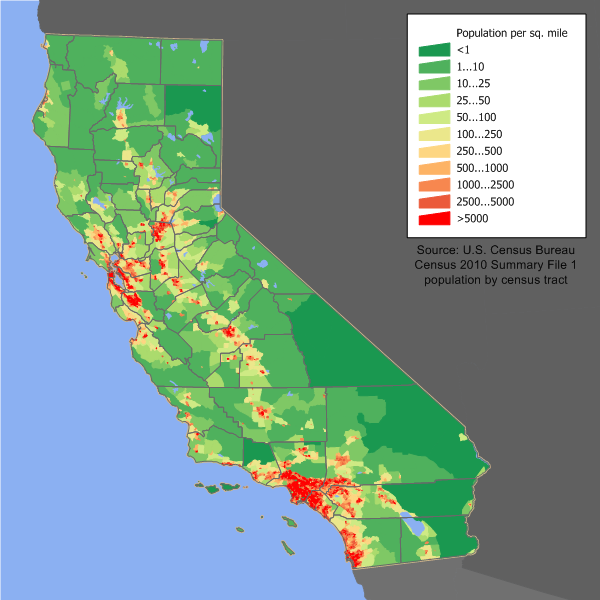
The U.S. Census Bureau and the state Department of Finance issue annual population estimates each December and they don’t always agree on how many human beings occupy California.
During the previous decade, following the 2000 census, their estimates were as much as one million persons apart – largely because of different calculations of state-to-state migration.
Since 2010, however, they have been fairly well in synch and last month, they were very close.
The Census Bureau estimated California’s population, as of July 1, at 39.6 million, while the Department of Finance tabbed it at 39.8 million.
Both sets of numbers underscored, however, one of California’s most important demographic trends – the slowing of the state’s once-soaring population growth rate.
Waves of immigration and two baby booms pushed the state’s post-World War II population growth rapidly upward.
It tapered off during the 1970s as the first baby boom ebbed, but picked up strongly in the 1980s and 1990s, thanks to surges of immigration, legal and otherwise, from other nations and a second baby boom.
During the 1980s, California’s population increased by one-fourth, from about 24 million to 30 million, for example. But growth began to slow in the late 1990s and has been decelerating ever since.
Immigration has slowed to a trickle, and California now loses more people to other states than it gains.
Birthrates have declined sharply and as the first baby boom generation ages, the state’s death rate is increasing.
Annual growth rates are dropping, from 0.9 percent in 2010-11 to just 0.4 percent in 2017-18, according to the Census Bureau.
Since the 2010 census, which found 37.3 million Californians, the state has added just 2.3 million people, the Census Bureau data confirm, for an overall growth of 6.1 percent. That’s virtually identical to the nation’s, 5.96 percent, and puts California in some danger of losing one of its 53 congressional seats, which will be redistributed after the 2020 census.
“If the next census does a poor job of reaching traditionally hard-to-count populations and immigrant communities, more than 1.6 million Californians could be missed and the state could easily lose a seat,” the Public Policy Institute of California says in a recent report. “This scenario assumes a generally inaccurate count, similar to the 1990 Census, and a 10 percent undercount among households with one or more undocumented immigrants.
“Undercounting traditionally hard-to-count populations and immigrant communities could affect how political districts are redrawn within the state, shifting representation away from poorer areas with larger communities of color and toward wealthier and less racially and ethnically diverse parts of the state.”
The Trump administration has proposed adding a citizenship question to the 2020 census, and also appears to be cutting back on outreach to the hard-to-count populations cited in the PPIC report.
In response, California is challenging the citizenship question in court and will spend millions of dollars to encourage census participation.
However, even a vigorous and accurate census will not change demographic trends. Even if California doesn’t lose a congressional seat, the fact of slowing population growth remains – and it will have myriad effects beyond reapportionment, some good and some not so good.
It will, for instance, slightly ease the state’s housing crisis and the demand for public services. But it also will mean stagnation in the number of taxpaying workers and customers for goods and services and, when coupled with the aging factor, make it more difficult for employers to fill jobs.
Demography, it’s been said, is destiny – as California will demonstrate.
